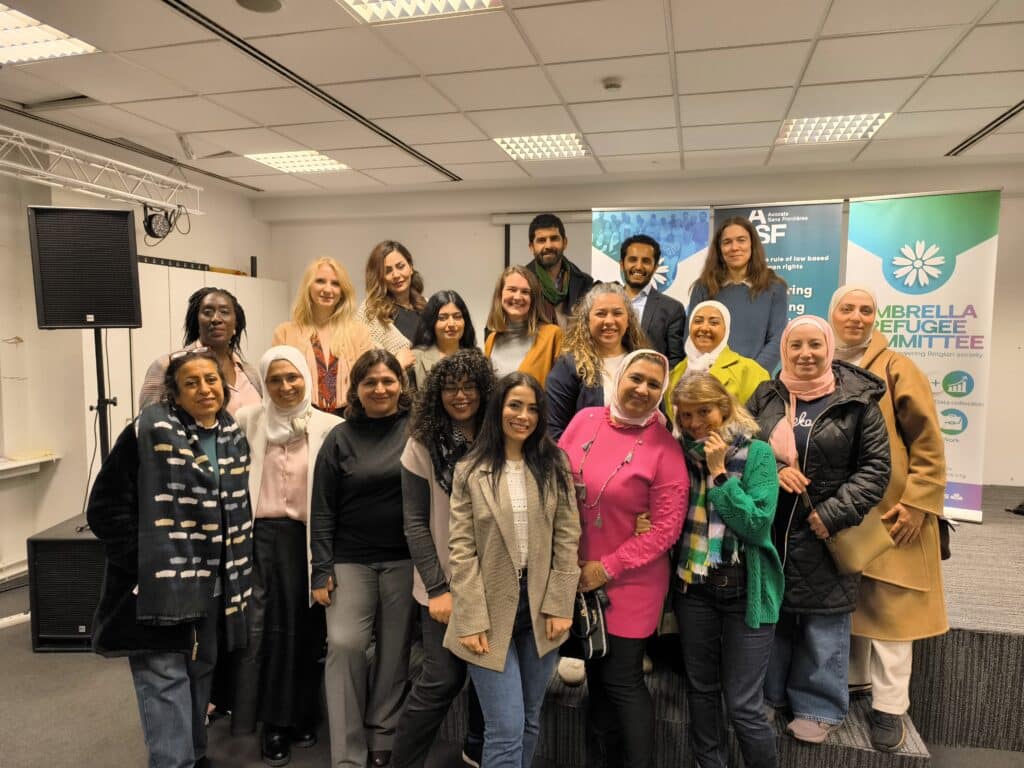
In the Euro-Mediterranean region, a deeply troubling trend has emerged in recent years: racist and security-driven discourse and policies are spreading and multiplying, creating a hostile and harmful environment for racialized people, people on the move, and their allies (human rights defenders, activists). A recent report by the European Union Agency for Fundamental Rights (FRA) has, for instance, documented the rise of Islamophobia across Europe. Meanwhile, in Tunisia and Morocco, a journalistic investigation revealed the organization of violent raids and expulsions of people of African descent into the desert—operations carried out using European funds allocated for “migration management.” It is in this context that the TACKLE project was launched—the first ASF initiative of this scale to be implemented in Europe. Its goal is to combat discrimination and structural racism by promoting youth activism. The project is led by twelve partners, including legal clinics and human rights organizations based in Belgium, Spain, France, Italy, Morocco, the Netherlands, and Tunisia.
Developing an anti-racist counternarrative and advocacy strategy
The project began with the launch of an advocacy campaign around the “Pact for Equality,” a document co-developed by fifteen anti-racist advocates in the lead-up to the June 2024 European elections. The campaign secured the support of 40 candidates for the European Parliament around key demands related to equality and anti-discrimination, asylum and migration, as well as democracy and citizenship. However, given the significant rise of far-right parties in these elections, it is all the more essential to continue denouncing the racist and discriminatory effects of Euro-Mediterranean policies by strengthening existing alliances. TACKLE has thus joined broader civil society efforts to renew the Anti-Racism and Diversity Intergroup (ARDI) within the European Parliament, and to influence the European Commission’s Action Plan Against Racism. The project also focused on promoting a new narrative on migration, notably through the drafting of a report that emphasized a rights-based approach rather than one rooted in security and criminalization.
Supporting victims and raising awareness on discrimination
TACKLE also worked to support individuals affected by discrimination by setting up “anti-discrimination hubs” and organizing awareness-raising activities on rights. Partner legal clinics in Italy open their doors weekly to vulnerable people, allowing law students to provide legal support to migrants who are structurally discriminated against in accessing their rights and services. Awareness-raising activities (“legal caravans”) have also been organized to reach a broader audience—for example, in Turin on the issue of housing discrimination, and in Brussels on racial and religious discrimination.
Amplifying civil society struggles
In a context of shrinking civic space and budget cuts, it is crucial to defend the resilience and capacity of civil society actors. TACKLE’s cascading funding mechanism will enable organizations based in Europe, Morocco, and Tunisia to carry out activities aimed at combating racism and discrimination starting in the autumn of 2025.
Looking ahead
More than a year after the launch of TACKLE, issues of racism and discrimination remain more relevant than ever in the Euro-Mediterranean context. The project will continue to respond to the implementation of racist and security-based policies proposed or adopted by EU institutions (such as the European Pact on Migration and Asylum or the proposed “Return” Regulation), and to actively follow the renewal process of the European Commission’s Anti-Racism Action Plan for 2025–2030. TACKLE also aims to strengthen its advocacy strategy around citizenship and political participation for all—both European and non-European residents. Another key objective for the coming year is to reinforce connections between actors on both sides of the Mediterranean. This was the focus of a regional conference organized by ASF in Palermo in March 2025, addressing racism, xenophobia, and the criminalization of solidarity. These efforts will continue in 2025 and further through cascading funding activities, student exchanges between both shores of the Mediterranean, and regional events.



